Does coolant affect AC?
Understand the impact of coolant on your AC system.
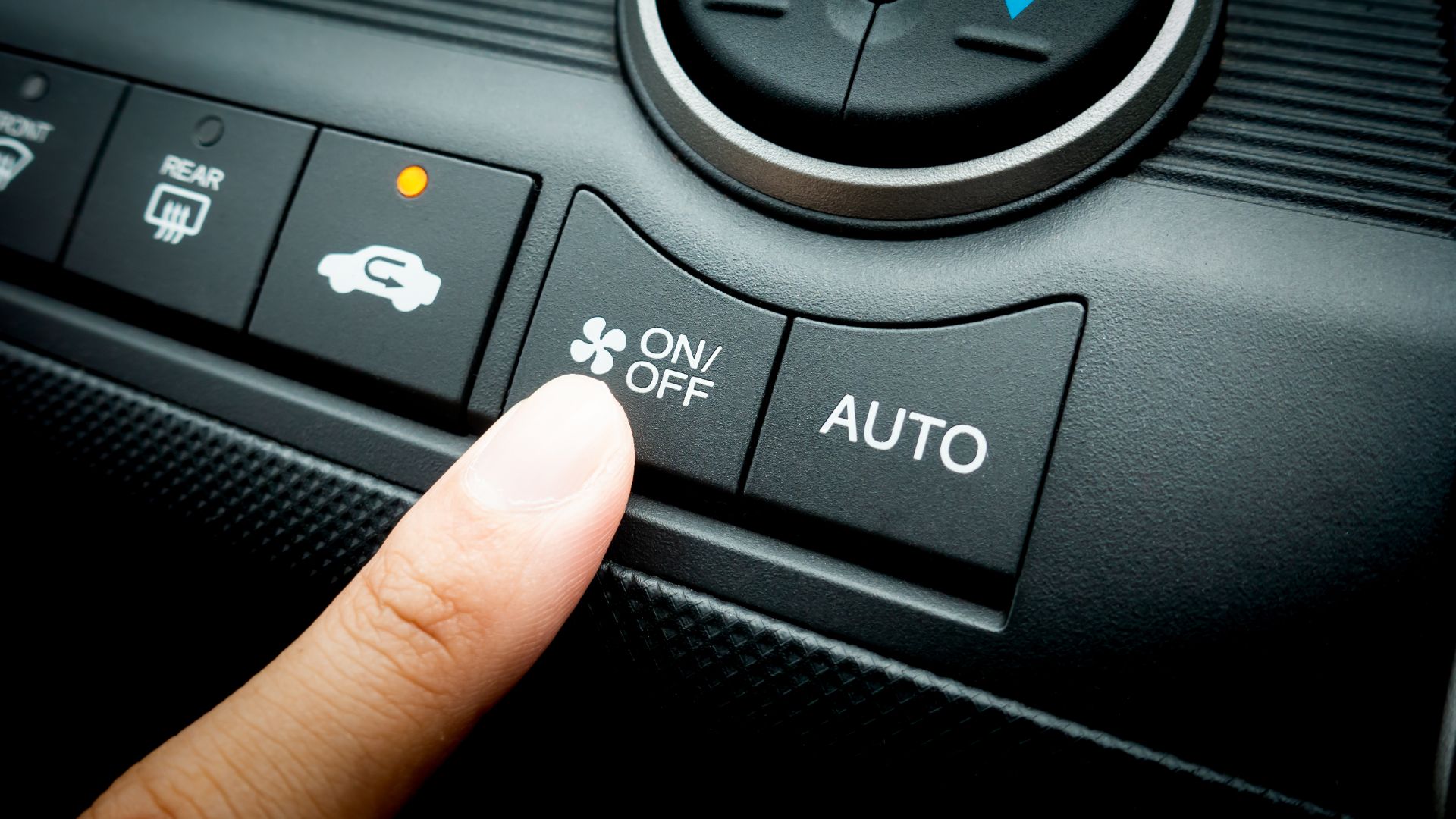
Many drivers often associate coolant with air conditioners. It sounds like something only an air conditioner should have, but in reality, the coolant referred to is often not the one in air conditioners.
Coolants in engines are different from the stuff in ACs that cool your car. One is necessary for your engine to regulate heat, while the other helps you forget that summer is scourging outside. Some people interchange them in usage, however, they are two different terminologies.
You must be wondering since they both work with heat regulation, does coolant affect AC? Don’t they have the same function? How are they possibly different?
Coolants affect air conditioners, and they have different functions and distinct differences. We explain all these in this article and give practical solutions to help you get the most out of both. Strap in your seat belts as we start with the difference between a coolant and the cooling stuff inside ACs.
What is a coolant?
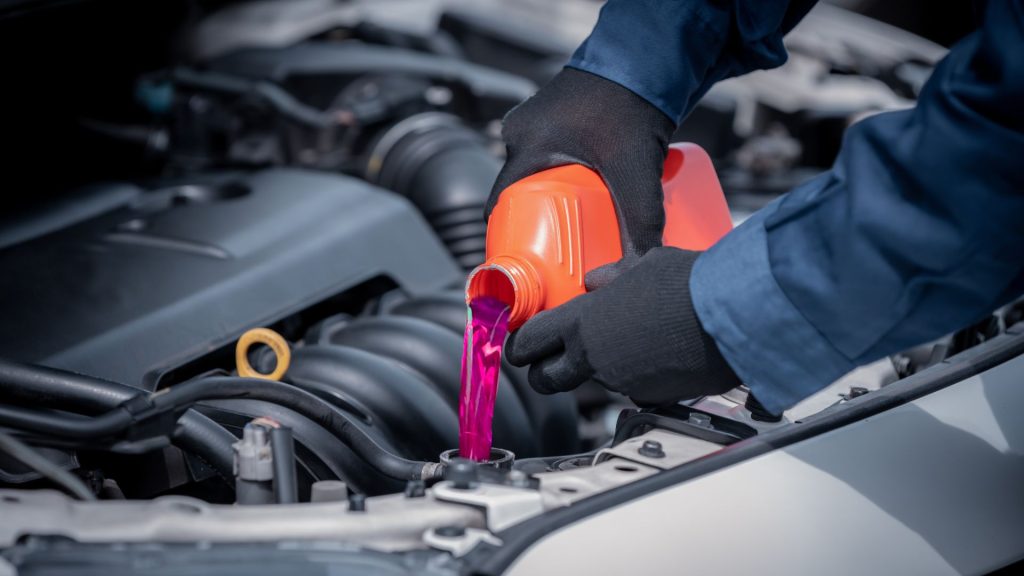
A coolant is a medium that draws heat from an object. In vehicles, this definition applies to two substances, confusing audiences on which one of them is implied in a discussion. There are two types of coolants in a vehicle: one that cools the engine and one that cools the engine.
Types of coolant
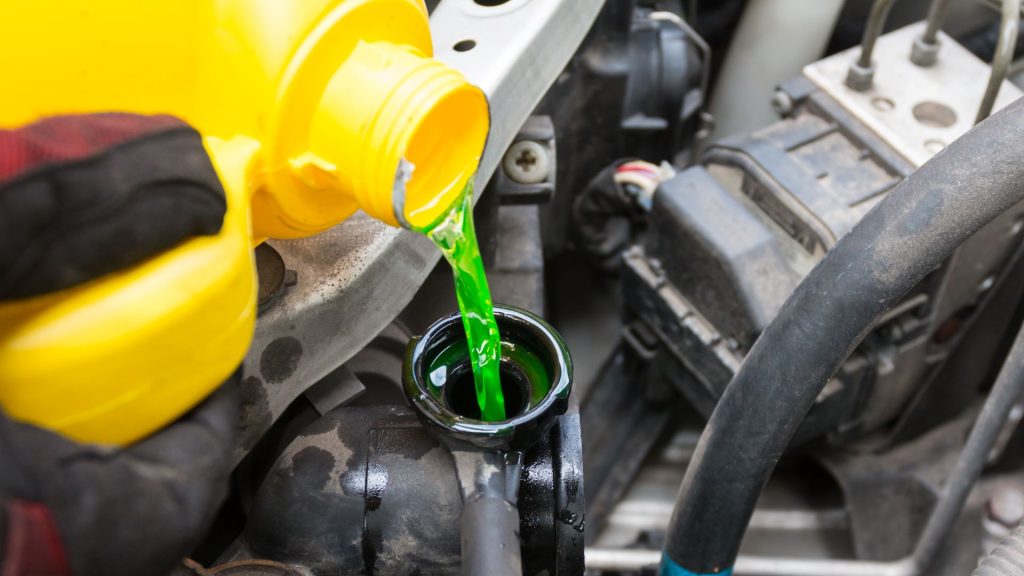
Engine-coolant
In this case, the coolant (antifreeze) regulates an engine’s temperature. It is a colored liquid (usually yellow, blue, green, pink, or red) mixed with water in the coolant reservoir or radiator (for older vehicles). Antifreeze, as the name suggests, will not freeze even in the most frigid temperatures.
Aside from acting as a temperature-regulating fluid, it also serves as a lubricant for some parts of a car’s engine, reducing friction and protecting the engine from damage. So, if your car quickly raises temperature while driving, you may be looking at the symptoms of low coolant.
In addition, antifreeze also helps in preventing corrosion, especially of aluminum cylinder heads, as they contain rust inhibitors. Coolant particles corrode themselves; as a result, the engines themselves don’t rust, even in parts where water often circulates if the coolant is in the proper amount. A coolant is essential for a vehicle’s longevity and operation.
Cabin-coolant
The cabin coolant (refrigerant) is responsible for keeping passengers comfortable despite a scourging summer sun outside. In general terms, cabin coolant is the refrigerant contained in air conditioning units.
An air conditioning unit consists of components that work together to manipulate the refrigerant, which absorbs heat from a car, leaving cool air for the occupants of the vehicle. It consists of a compressor, condenser, dryer, metering device, and evaporator.
Manufacturers use a hydrofluorocarbon-based refrigerant which has little effect on the ozone layer, unlike its predecessor, Freon. The refrigerant is non-flammable and produces fewer greenhouse gases, making it great for the atmosphere.
However, most US drivers refer to antifreeze fluids as coolants. Therefore, we address antifreeze for most of this article as coolants.
How is a coolant different from a refrigerant?
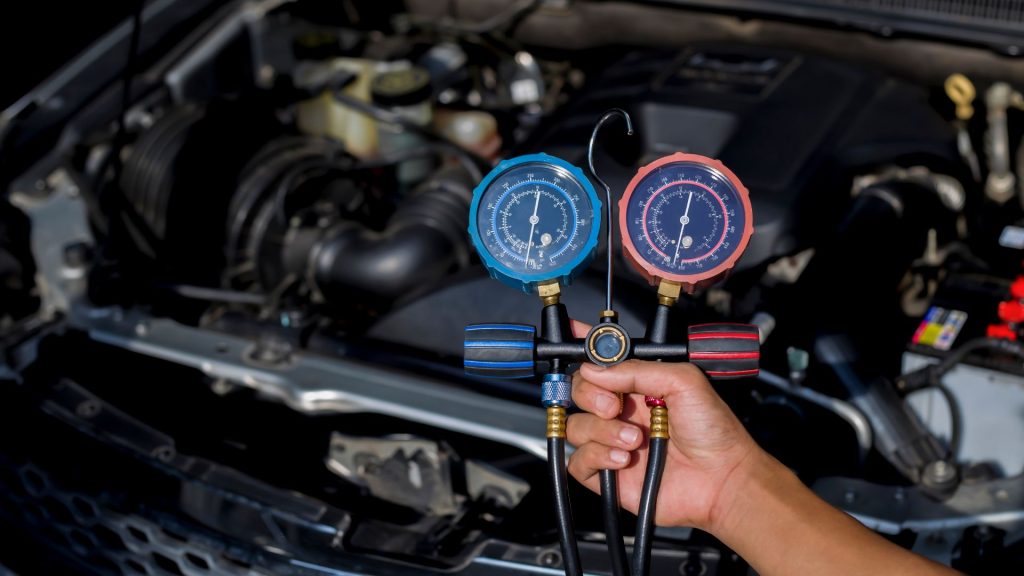
So far, the main difference between a coolant and an air conditioning unit is that a vehicle can do without one. The coolant is an essential part of a car’s engine, and its absence causes quick wear and very high engine temperatures, which is extremely dangerous.
Air conditioners, however, are creations aimed at the comfort of a driver and passengers, and it has no direct influence on a car’s engine operation.
How does coolant affect ac?
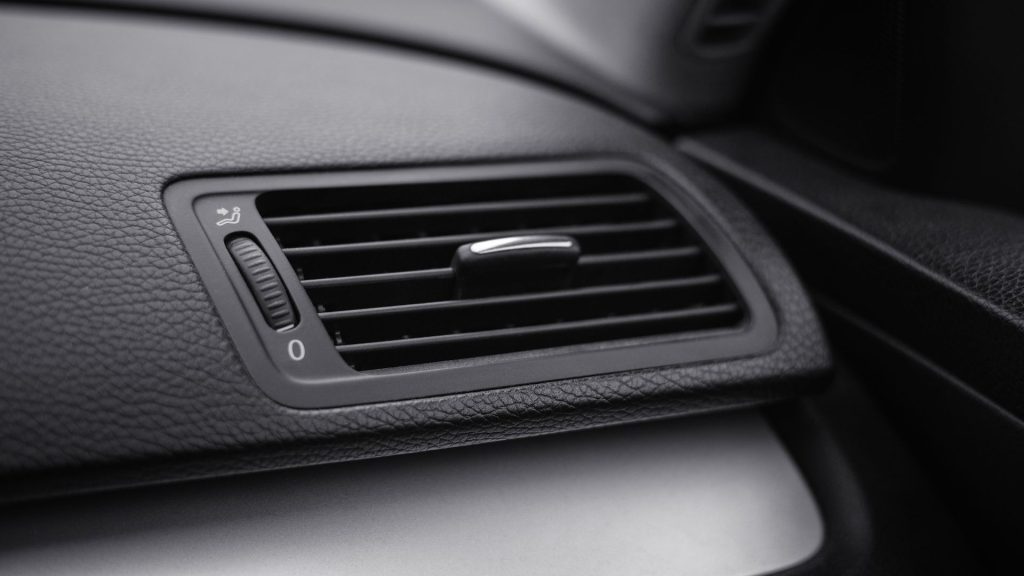
Coolants affect a car’s airflow, humidity, and temperature. These three factors, in turn, affect the extent of work an air conditioner does. The paragraphs below explain how these factors work.
Airflow
Coolants regulate the amount of cool air entering the air conditioning unit. If the quantity of coolant in the vehicle is not enough, the humidity and temperature in the car will increase as too much hot air enters the air conditioner. In case your car’s A/C isn’t blowing cold air, it may be due to insufficient coolant level.
Therefore, the right amount of coolant is key to having proper airflow in a vehicle and keeping the air conditioner at optimal performance.
Humidity
Refrigerants regulate humidity distribution in air conditioners. Too little refrigerant releases a dry cooling effect, drying the mouth and skin of passengers. At such junctures, the job of coolants in the engine is to release enough humidity to counter this effect from the AC.
Temperature
Coolants provide heat where necessary and also exhibit cooling behaviors when needed. They regulate the engine’s temperature, keeping it at a prime temperature to ensure other components attached to it work, like the air conditioning unit. Noting that the air conditioner will not run if the engine is not working shows how vital a coolant is for the air conditioner to work.
Summing up the points above, the AC’s performance is greatly affected by the state of the coolant in a car’s engine. Too little coolant gives the AC more work while silently moving toward engine destruction. The right amount of coolant in your vehicle will ensure your air conditioning unit is not unnecessarily stressed.
Does AC affect coolant?
Air conditioners have no significant effect on coolants, and the reason for this is that the engine does not rely on the air conditioner in any way for it to function correctly.
On the other hand, the air conditioning units would not run without the engine in good condition. And one of the most critical components of the engine is the coolant. Without it, the engine stands the risk of overheating, leading to many other problems, parts degradation, and ultimately engine failure.
How do I know if my coolant is too little from observing my ac?
By observing your car’s air conditioner, you can tell when the engine’s coolant is too little or greatly depleted. Coolants give heat where necessary, ensuring that the humidity in the vehicle is in the right amount for the air conditioner to work well.
Insufficient coolant levels reduce the amount of humidity in a vehicle. Air conditioners acting on this less humid air will give off dry air. The less humidity available, the more dry air the AC spews forth.
Therefore, if your cabin feels dry with the air conditioner on, it may be a vital sign to check your engine’s coolant. It may be significantly depleted or contaminated.
What happens to the AC if the coolant finishes?
Air conditioners give off hot air when the coolant is finished. Since the air conditioner works with aid from the engine, it would not function as it should when the engine’s coolant finishes.
Since the engine is building up more heat than necessary because of a lack of coolant, the air conditioner will add to the stress on the engine. The result is a hindered operation in the air conditioning unit.
What would happen if I removed the AC?
If you remove the air conditioning system, you will save fuel and reduce the work on your engine. Though you’ll feel the heat during the summer, it would not be that significant, except when you’re sitting in traffic.
Your car does not need the air conditioner to perform in any way. It is only there to add comfort and is useless in cold weather (unless you know how to use it right). Otherwise, it adds weight and load to your engine and takes up more fuel.
Most race drivers delete the air conditioning unit to increase speed and save fuel. The work of the coolant is enough to give you the right temperature in the cabin while on the move. You will find the AC almost useless with a convertible.
How do I get the most out of AC and coolant?
The first action you should take is to schedule and stick to a maintenance routine. Low coolant levels, leaks, or contamination can be detected early and properly treated.
On your own, you could periodically check for coolant levels by peeking into the coolant reservoir at intervals. You must ensure the water level is between the maximum and minimum levels.
Furthermore, if you notice any hot air coming out of your air conditioner, ensure a professional examines it as soon as possible. It may be an indicator of engine overheating. Also, avoid using your air conditioning unit whenever you can to reduce the workload on your engine.
Our take
Coolant (or antifreeze) affects air conditioners indirectly as air conditioners do not work correctly with a faulty engine and a depleted or contaminated coolant affects the engine negatively. To get the optimum best from your engine and air conditioning unit, you must ensure your coolant levels are in the right proportion and uncontaminated.
You can drive without an AC, but an AC won’t work without coolant in the engine. Instead, you’ll get hot, dry air. If you often drive long distances with speed, you might want to consider removing the air conditioning unit.
Will AC stop working if the coolant is low?
Yes. The engine will not work as it should with low levels of coolant. Therefore, your AC will not perform as it is supposed to. Instead of cooling the air in the cabin, it will release hot, dry air.
Does coolant help your AC?
The coolant helps the AC by ensuring the engine is cooled and heated correctly. A faulty and overheating engine will affect the air conditioner’s performance negatively.
Do you need coolant for AC in the car?
Yes, you need the proper level of coolant (antifreeze) in your car for your AC to function properly. The coolant keeps the engine running well, which keeps the air conditioning unit running smoothly.
Can a coolant thermostat affect AC?
Yes, the coolant thermostat can affect the AC as it regulates the flow of coolant in the engine from the radiator. Any defect in the coolant thermostat will impact the engine, which in turn will affect the AC.